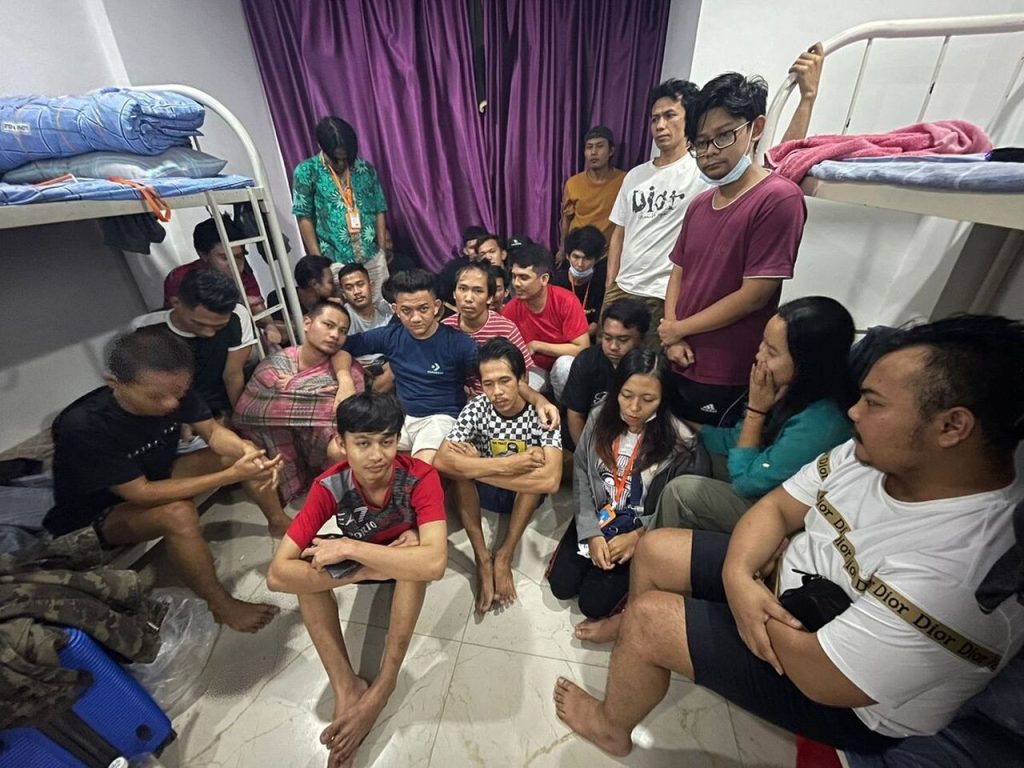
By: Victoria Fanggidae and Darmawan Prasetya
The Manpower Ministry issued Ministerial Regulation No. 4/2023 (Permenaker No.4/2023) in February to expand access to occupational-based social security for Indonesian migrant workers, which is a good intention. Nevertheless, some problems might compromise the regulation from achieving its good intentions which must be addressed by the government.
This regulation covers 21 types of risk, an increase from 14 risks in the previous regulation it replaces (Permenaker No.18/2015). The schemes offered to migrant workers are similar to social security schemes already available for Indonesian (non-salaried) workers at home. The schemes are work-accident benefits (JKK), old age savings (JHT) and death benefits (JKM), with different mechanisms, to pay a contribution and to claim.
Migrant workers need to pay a one-time contribution before they depart to their destination country, subject to the duration of their employment contract. JKK and JKM schemes protect workers from pre-departure, during their work abroad, and after leaving the host country, or if the worker incidentally got injured, for a maximum of a 24-month contract, with possible extension. Workers’ families could also access the benefits in the form of scholarships for their children if they pass away during work.
While it is indeed an improvement, a brief overview of this regulation shows some problems. First, the regulation negates the role of employers in migrant workers’ protection. In this regulation, employees are the only parties responsible to pay contributions while employers have no obligation to do so.
Second, migrant workers might find some technical challenges to access the benefits abroad since the Indonesian government has yet to establish social security offices abroad, not even in countries such as Singapore or Malaysia which host the largest number of Indonesian migrant workers.
Third, the regulation might be less effective because a vast number of Indonesian migrant workers are illegal, and many are victims of human trafficking. It is estimated that there are more than 5 million illegal Indonesian migrant workers. They entered destination countries through illegal channels, have no legal documents, and worse, suffered abuses and were sent home in coffins.
Consequently, those problems have several implications. It implies that workers’ risk protection is an individual’s problem, contradicting Government Regulation No. 44/2015 which regulates employers’ responsibility to also bear employment risk.
Another implication is that the schemes are less portable since migrant workers can only access the benefits in Indonesia. It is also less flexible to address migrant workers’ immediate financial problems such as debts and debt bondage, where cash is more needed than savings for old-age, like the case of JHT for workers in Indonesia. Most importantly, without legal status, there is no way that migrant workers can access these new social security schemes.
To deal with these problems and implications, the government has options of measures as follows.
First, the government needs to establish a treaty or agreement with the destination country about health or occupational-based insurance and other protection that workers need in that country. An example of this practice exists between Indonesia and Taiwan. About this, the idea of establishing employment attaché or opening social security offices, especially in major destination countries for migrant workers, should be explored.
Second, the role of employers, if not enforced in the destination country, must be played by agencies that send workers abroad. Nearly the same model has been working in the construction sector, where contractors pay social insurance contributions as a percentage of wages and/or project values, which indicates the responsibility of business in workers’ risk protection.
Third, and the most difficult one which needs extra coordination work among different governmental and security institutions, is to ensure the safety and security of the migrant workers from trafficking and human rights abuses.
Furthermore, since the regulation means to protect workers from work outside Indonesia, the Indonesian government must also enhance its diplomacy, at minimum, at the ASEAN level. For example, while the government has so far made the early-stage process of cooperation regarding migrant workers’ social security with Malaysia in 2019, such a memorandum of cooperation has yet to change into a social security agreement that rules the technical access for registration and benefit received by migrant workers abroad.
The Philippines is a good example because its government has effectively negotiated bilateral agreements that cover labor contracts, wages, and the portability of social protection for migrant workers with 12 countries across the globe.
Indonesia, chair of ASEAN this year, could also turn this momentum to improve the lives of migrant workers. Previously, the chairmanship of Cambodia 2022 successfully panned out to produce the declaration document of portability of social protection for migrant workers among ASEAN countries. Indonesia must take this good result from Cambodia to find ways to roll down such declaration into agreements and technical implementation direction between the country of origin and destination.
This requires willingness and openness for dialogue between all related ASEAN countries. Both countries of origin and destination should come up with a win-win policy cooperation option, in the ASEAN spirit of unity and collaboration.
***
The writers are policy researchers at the Prakarsa (Centre for Welfare Studies).
This article was published in thejakartapost.com with the title “New rule a drop in the bucket for migrant worker protection”. Click to read: thejakartapost.com

